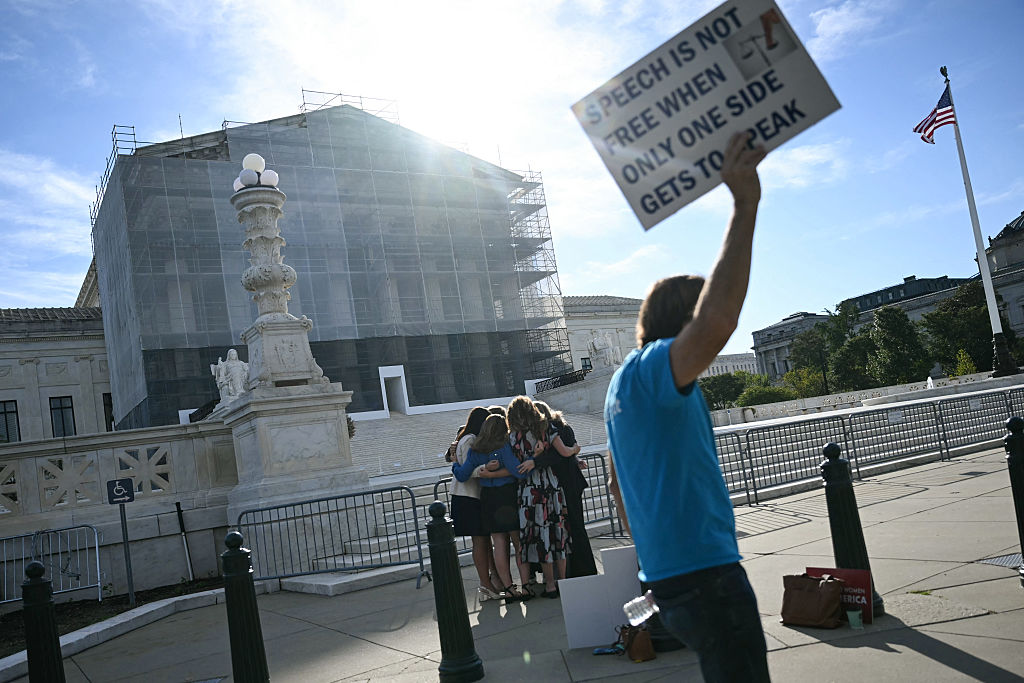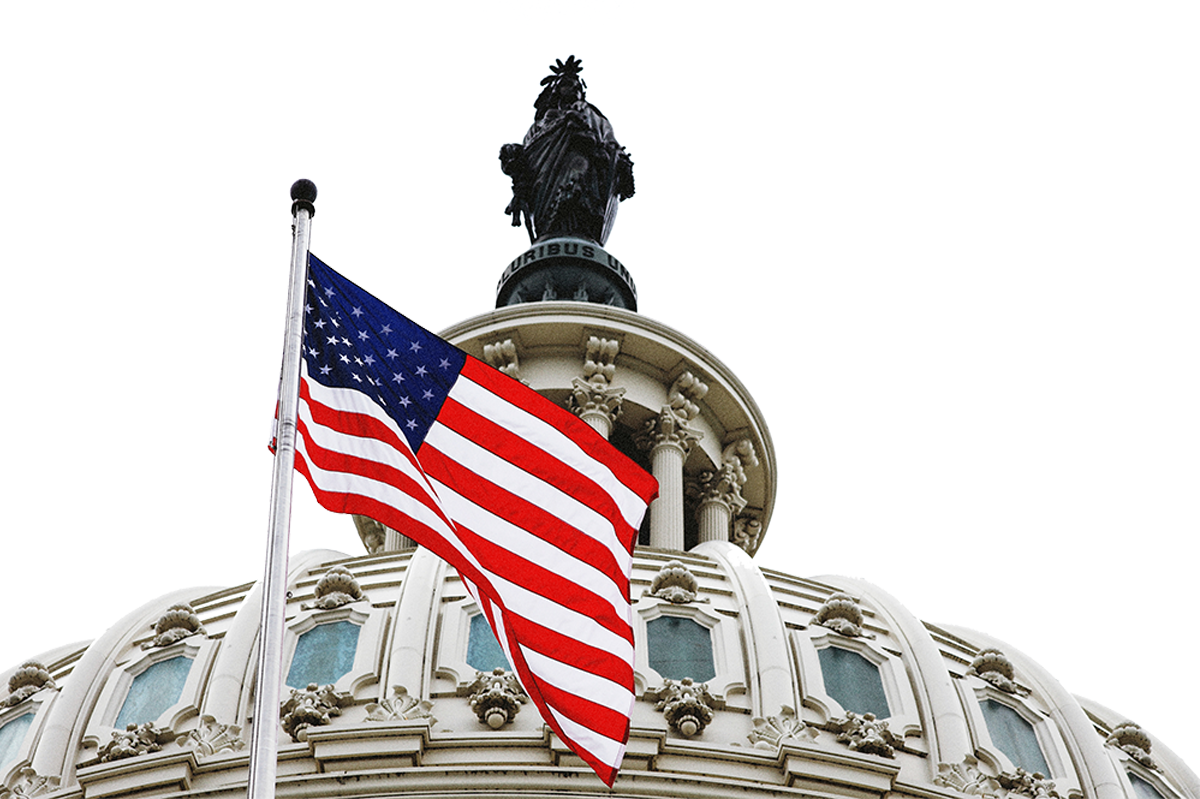Kaley Chiles is a Christian therapist who places the Bible at the center of her practice.
To many of her patients, religious faith is often more important than Freud. They see Bible readings, prayer and a focus on spirituality along with traditional principles of psychotherapy as essential elements of any treatment plan.
While outside the mainstream of psychoanalytic practice, Chiles’s technique combining traditional psychotherapy with Biblical precepts for years had been deemed non-controversial, if confined to more conservative regions of the country. But that all began to change in 2019 when the state of Colorado enacted legislation banning so-called conversion therapy for minors, a technique that aims to help gays change their sexual orientation.
Fearing the law would interfere with her treatment of teenage clients wrestling with their sexuality, Chiles filed suit in federal court against Colorado alleging the statute violated her First Amendment free speech rights. She lost at the trial level and in the initial round of appeals, with jurists finding that Colorado’s ban fell well within its right to regulate medical practice and protect patient safety.
But it now appears the US Supreme Court is leaning toward upholding Chiles’s right to advise young clients that changing their sexual orientation is a viable and realistic option, despite widespread medical and scientific agreement that such techniques rarely, if ever, work.
In oral arguments on October 7, the state’s conservative majority peppered both sides with questions suggesting they were leaning in Chiles’s favor. A decision upholding Chiles’s appeal would follow a string of Supreme Court rulings in recent years favoring religious conservatives while creating new hurdles for gays and transgenders.
Without First Amendment protections, “states can transform counselors into mouthpieces for the government,” argued James Campbell, a lawyer for Chiles, at the Supreme Court hearing.
The case poses novel Constitutional questions that center on ability of medical professionals to communicate with patients about treatments they believe are effective but that have been outlawed by state regulators.
On a deeper level, though, Chiles’s lawsuit and the legal battle surrounding it are simply the latest fight in the nation’s long running conflict over cultural values, ranging from gay and transgender rights to abortions and race relations.
In June, the court’s 6-3 conservative majority ruled in favor upheld a Tennessee ban on the use of puberty blockers and hormones for the treatment of young patients suffering from so-called gender dysphoria and seeking to change their gender identity. In another ruling this year, the court also upheld, on a temporary basis at least, the Trump administration’s ban on LGBTQ persons serving in the military while the litigation continues
And in a 2018 decision that may well have a bearing on Chiles’s appeal, the court found in favor of religious conservatives by striking down a California law requiring anti-abortion groups to provide information on state funded abortion and contraception when counseling their clients. The court found that the law infringed on anti-abortion groups’ free speech rights.
Reflecting the heated politics underlying the Chiles case, dozens of interest groups from both sides of the ideological spectrum have filed amicus briefs with the court. Medical societies of various stripes have been particularly scornful of Chiles’s case. One brief filed by the American Psychological Association, the American Medical Association and other organizations representing health care professionals maintained that conversion therapy rarely if ever works. It argued at the same time that the practice causes great harm to patients by further confusing them about their identity and disrupting family relations while raising the risk of suicide.
Conversion therapy embraces a wide range of techniques, some bordering on barbaric, including aversion therapies using electroshock treatment and nausea inducing drugs. Some 30 states have banned it.
Chiles and her lawyers say she would employ none of those practices and that she engages only in talk therapy. But in court filings and in interviews, they stop short of describing exactly what Chiles would tell clients seeking to change their sexual orientation, only that she might advise them on how not to act out unwanted sexual impulses.
“When she engages in those conversations, she’s encouraging them to achieve their goals,” Campbell said during oral arguments. “She’s discussing concepts of identity and behavior and attractions and how they fit together.”
This is an ongoing active dialogue where she’s helping them explore their goals, and that absolutely has to be protected by the First Amendment.”
The state of Colorado of course sees it differently.
“No one has ever suggested that a doctor has the First Amendment right to offer the wrong advice,” countered Shannon Stevenson, Colorado solicitor general. “The law applies only to treatments, that is, only when a licensed professional is delivering clinical care to an individual patient. In that setting, providers have a duty to act in their patients’ best interests.”
During the October 7 oral arguments, the court’s conservative justices seemed supportive of Chiles’s free-speech claims. Justice Samuel Alito for one opined that because Colorado law bans discussion of conversion therapy but permits therapists to advise clients on transitioning from one gender to another, the law had clearly crossed a First Amendment red line.
“That looks like blatant viewpoint discrimination,” Alito declared.
Justice Amy Coney Barrett queried Campbell on whether clients who felt they had been harmed by conversion therapy might be able to file a malpractice claim. It was a loaded question in the sense that proponents of Colorado law argue conversion therapy is harmful and that a First Amendment protection for therapists would leave patients defenseless.
Bryant’s question implied that civil litigation against irresponsible therapists might serve as a brake against harmful practices.
Chiles’s legal team, Alliance Defending Freedom, a prominent Christian legal organization that has participated in over 70 Supreme Court cases, has packaged their client in a way that aims not only to persuade jurists but also the public at large. That is hugely important in the world of civil litigation. Having a sympathetic client is often just as pivotal as a powerful claim or even a particularly effective legal team. All the legal firepower in the world won’t help if juries and judges are put off by the claimant.
On its website, Chiles, who is based in Colorado Springs, is depicted in a video hiking in the Rockies near Denver while she talks on an audio track about her clients and how Colorado’s conversion therapy ban had frustrated their efforts to regain emotional health.
“They say that emotions are like children. It’s not OK to let them drive the car and it is not OK to stuff them in the trunk,” she says in the video. “I counsel my clients on… how to make their lives more fulfilling, satisfying and more in line with who God created them to be. What I am struggling with right now is that the state of Colorado has decided to impose their own values, not only on me but more importantly on my minor clients.”
It’s a well-articulated rationale by a seemingly credible plaintiff. It’s just not altogether clear, from the science at least, that her clients would benefit.


























Leave a Reply